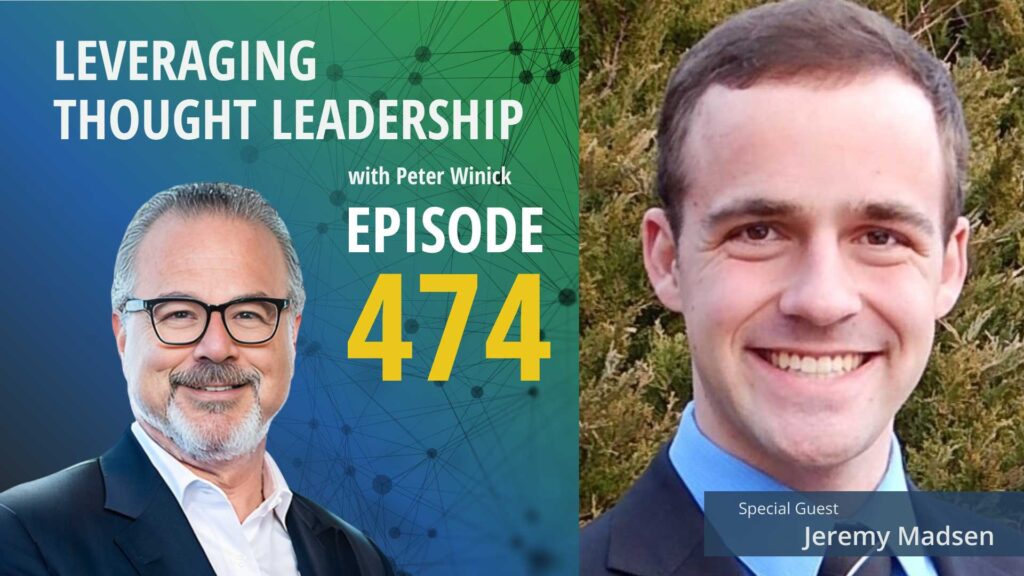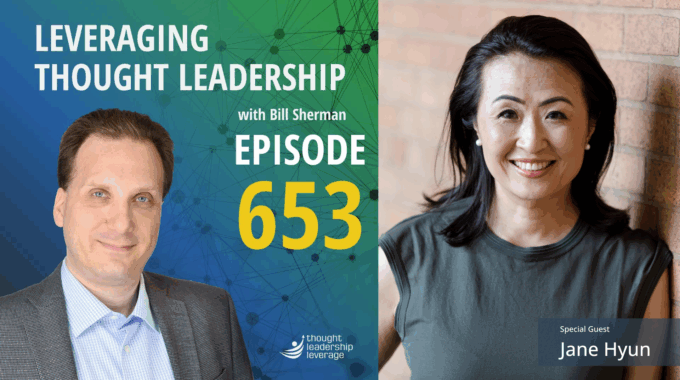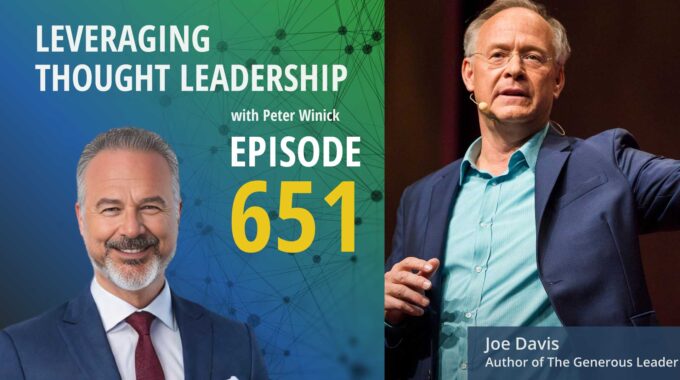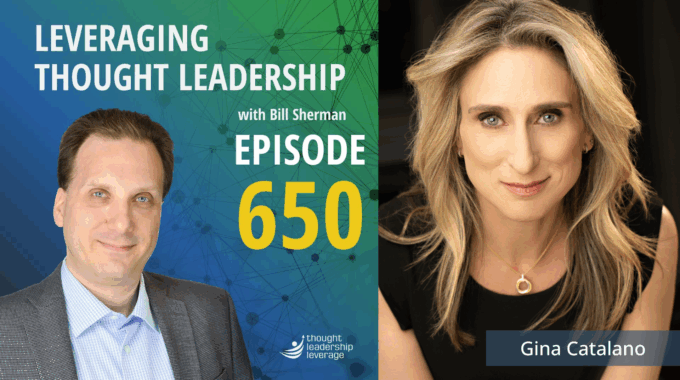The Hidden Barrier to Engagement and How to Break Through This episode unpacks how cultural…
Authors and Community | Jeremy Madsen

The importance of authors supporting authors
An interview with Jeremy Madsen about author communities and the journey to get published.
Unless you are writing a book with a co-author or ghostwriter, it probably feels like a very lonely task.
But what if you could find a fellowship that provided encouragement and advice?
Our guest today is Jeremy Madsen, Operations Manager for BK Authors an author group affiliated with the award–winning publisher Berrett-Koehler. This group helps authors and publishers bridge the gap to bring better books to market.
Jeremy starts by helping us understand what an author’s group is all about. He explains that these communities, especially when supported by a publisher, can give authors a better awareness of the market and industry. In addition, mentoring is a sharing process that works best when all sides open up. Authors further down the path share advice from experience, while newer authors share information about new skills and tools that didn’t exist five years ago.
Finally, we discuss the timeline of publishers versus authors. Publishers have limited resources, and need to move on to the next project as soon as possible, meaning they are by your side for mere months. The author’s timeline should be further-reaching, amortizing the investment over 5 – 7 years. Plus Jeremy shares the growing trend of publishers investing into a backlist of older titles, giving non-fiction books an even greater chance to see success over a longer course of years.
Jeremy is deeply involved in both the writing and publishing community and brings unique insights in this episode that few others can provide.
Three Key Takeaways:
- Being part of an author community can be big morale booster to not be alone on the journey.
- Don’t be afraid to reach out to established authors who have published books in your area of expertise. You’d be surprised how generous many will be with their time and advice.
- A publication date has no bearing on the importance or usefulness of a book. It is a date of reference, not an expiration.
If you need a strategy to bring your thought leadership to market, Thought Leadership Leverage can assist you! Contact us for more information. In addition, we can help you implement marketing, research, and sales. Let us help you so you can devote yourself to what you do best.

Transcript
Peter Winick And welcome, welcome, welcome. This is Peter Winick. I’m the founder and CEO of Thought Leadership Leverage and you’re joining us on the podcast today, which is Leveraging Thought Leadership. Today, my guest is Jeremy Madsen, and Jeremy is the operations manager for BC Authors, a nonprofit organization supporting nonfiction authors and thought leaders became authors, was formed in 1998 as a network for several hundred offers published with Barrett Koehler. Jeremy is also involved with the Association for Religiously Affiliated Writers and Publishers, where he manages the production of an annual conference in Utah with over 400 attendees. He’s also an editor, writer, teacher and father recently, and a newer father once again, as in the last couple of weeks, we’re just chatting, but welcome aboard, Jeremy. How are you?
Jeremy Madsen I’m good. I’m really glad to be here. Really happy to be with you. Peter.
Peter Winick Yeah, so let me just dive in. So I’ve been a big admirer of BK for a long time, but without this being just a, you know, an infomercial for BK, I want to talk about the importance of authors supporting authors. And I think what I find surprising when I hear your take is first time authors. The job of an author. The job of a writer is a pretty solitary job, and I think it’s sort of eye opening for a lot of, particularly new authors, to realize there’s a universe, there’s a community of other authors out there that are incredibly generous, that are incredibly supportive, that you need to sort of connect with to help them and have them help you. So any would you add to that? Yeah.
Jeremy Madsen I think that was my experience. You know, going through high school, I was writing by myself. I had my siblings supporting me. I briefly tried to start up a writer’s club at at the high school level, but it’s always if, if you do find people, it’s people, your peers, you know, people who aren’t published just like you, who have no idea what they’re doing, just like you. And it wasn’t until college that I got involved in one of those organizations that I’m currently operations manager for called Latter-Day Saints in Publishing Media in the Arts that I started to join this organization of the whole range. You had authors, beginning authors just like me. You’d be working on their first manuscript, but you had authors who had published 1020 books, and then you also had publishers and editors in that organization at those events that you could just talk with and network with. And the I had seen a big difference in maybe not so much my writing per se, because you can learn that from books, but definitely my awareness of the market and my awareness of the industry and how to. Navigate that industry successfully.
Peter Winick When I think what many authors don’t realize early on is they think the writing is the hard part and it is. It’s now. That’s not easy by any stretch of the imagination. But that’s just one step. The other side, which is as hard, if not harder, is the marketing, the all the things that the promotions, all the things that you need to do to get the book launch, to get it out there. And it doesn’t necessarily mean having a New York Times bestseller per say, but there’s lots of things that need to be done that are tactical, that are, you know, social media, whatever, to get a book out there. And what a better there’s no better way to learn than others that have been there before you. Can you give an example of a couple of ways that communities of authors have supported one another and things that you’ve seen?
Jeremy Madsen Certainly. So first is, is just knowing that you’re not alone, knowing that having that encouragement that there’s others on your journey, being able to talk with them definitely is a big morale booster and can be a big motivator of, okay, you know, this person was where I’m at now three years ago. But look, they just got their manuscript accepted and this person got their book published. And you see people all along the train of publishing and you’re like, okay, I can do this another way.
Peter Winick I’ll actually stay, stay there for a minute because that’s really important. And I’ve seen this as well where, you know, I’ve been at events where we’ve gotten bunches of offers together and having conversations and people see each other like, Oh, that was me two years ago. And then in the same room they can say, Oh, there’s someone that’s on their fourth book that I hope will be me in two years. So what can I give to this person who’s six months behind me, and what can I learn from this person who’s two or three years ahead of me? Right. And it’s a very nice combination of generosity and reciprocity that I’ve observed.
Jeremy Madsen Those are two excellent terms. I see that all the time, that it’s not just, you know, the experts that are well-established, that are mentoring everyone else. But you’re right, anyone can find someone a little farther behind, not farther behind, but newer than they. So just the other day, I haven’t published a book yet, but just the other day yesterday I was giving feedback on a friend of mine. She was working on a query letter for a publisher and I thought, Well, I have attended sessions about career letters. I know some resources about query letters and I know she hadn’t. And so I was able to send her those resources and just give some comments on her query letter, even though I myself, when I eventually go to write a query letter, I’m also going to need help.
Peter Winick Well, I like what you said about sort of the mentoring thing, because it’s I think that everybody can help everybody. So you might be a newly minted author, but maybe you’re more social media savvy than someone that’s written seven books. And when they came up the path, maybe the way to launch a book was to do a physical book tour, right? And there they might be, even though they’re seasoned as an author, there are new strategies and tactics that come along that they might be novices in, that you can support them because you have that experience from another domain in your life, from, you know, being social media savvy or knowing how to use video or whatever the case may be.
Jeremy Madsen Exactly. Yeah. Another thing that I have seen in the two organizations I’m a part of, and this is not true about every author or organization, but the two I’m a part of, they’re very much they’ve integrated the authors with the publishers so they’re color authors was formed by the publishing company or the publishing company reaching out to some of its authors and saying, We want to help you form an author cooperative to help support the authors who publish with their company. And there’s always a member of the publishing company on the author, board of directors, and then all the events that the author organization does. There’s members of the publishing staff they’re presenting, working with the authors. Sure. And it’s the same thing with the other organization to do, where it’s its authors and publishers and editors and various other types of creators. And that’s a very big difference than some other forums I’ve seen where it’s just authors, because sometimes if you just get authors together, they kind of talk in a way about the publishers as if the publishers, they’re the adversary, They’re the problem.
Peter Winick Yeah, right, right, right, right.
Jeremy Madsen They don’t understand us. They don’t give us good royalties. They don’t accept it. Right? Right. But once you get the publishers involved, the publishers are like, we want to publish good books just like you let us. And I thank you about how together we can improve our manuscript, improve our marketing. And the publishers know the market a lot better than the authors. And so the publishers have to explain to the authors, this is the current state of the market. We want you to succeed in the market, but you need to understand the current state well.
Peter Winick And I think some of it is about alignment and understanding. So it’s not really helpful for a bunch of authors to get. And they don’t go be publishers. They you know, they don’t pay me if they don’t do this for the publishers to sit around going, Geez, if those authors only did what we asked them, like, that’s not really helpful. So I think if it comes from a place of understanding, you can get that alignment in place. Because what I find the inherent disconnect from an industry standpoint is at the end of the day, any publisher only generates revenue by number of units sold by some sort of profit margin per book. Less cost. Right. That’s it. Full stop. From an authors perspective, most authors the book, or even if there’s many books, only make up a relatively small percentage of their direct income. And it’s only at certain moments in time. It’s almost like an eclipse that the book is really a priority for them, typically around launch and all that other stuff. And then for the all the authors, they’ve got other ways to leverage, monetize and scale the ideas that are in that book, whether it’s speaking, consulting, advising, etc. And the publishers don’t really get a bite of that apple. So you have to think about this and say, okay, at what moment in time where we align, Well, we both really care a lot about selling books and we’ll do whatever we need to do. And what moments in time are we aware that, hey, you know what? If I publish with a publisher three years ago, I’m less important to them? But I might be if I was in the spring roster this year?
Jeremy Madsen Yeah, that. That’s really a key idea of alignment. I think.
Peter Winick It’s great. If you’re enjoying this episode of Thought Leadership Leverage, please make sure to subscribe If you’d like to help spread the word about our podcast, please leave a five-star review at ratethispodcast.com/ltl and share it with your friends. We’re available on Apple Podcasts and on all major listening apps as well as at Thought Leadership Leverage.com/podcast.
Peter Winick Given you do sort of straddle both worlds. If there’s someone out there listening today, and I imagine that there are many, that are thinking about their first book and writing their first book, any words of advice, tips, things to do, things not to do. As they get ready to sort of go down that road.
Jeremy Madsen You have to be committed. You have to really want it. If you’re doing it to make money. There’s much easier ways to make money. If you’re doing it to get a message out there, then you have to do it well in order to reach a lot of people. If you don’t do it well and you’re not very committed, you’re going to you may as well just email your message out to all your friends and family and post on Facebook because you’d reach about as many people that way as you would trying to write and sell a book on your own without doing it very well. I would definitely recommend finding an author organization. If you publish nonfiction, any sort of self-help business, definitely check out the BC Authors organization that’s a B authors dot org. But there’s other organizations out there. There’s just Google, Google, ask around. Look for those organizations. There’s organizations that have writing writers, chapters, chapters. I know I’m I grew up in Utah. I know there’s a link of the Utah writers, for example. I imagine most other states would have something similar and then look for events, look for author events, workshops, not so much the one person online with the video series sort of thing, but at an in-person event with other authors, with publishers where you can start to form those connections, have those one on one conversations and see what other authors are saying about the market and what they’re doing to promote their books.
Peter Winick Got it. So you mentioned the commitment piece. I think that’s really key where, you know, you can’t do this halfway. It is a big commitment. One thing I’d like to also add to what you said is you mentioned, you know, finding groups and in-person events and all those things. And I think that’s 100% correct. I also think that a lot of authors find it really surprising that when they actually reach out, reach out to an author, even a highly regarded author that they admire, whose work has had an impact on them and reach out to them, you’d be surprised at the level of receptivity, right? If you read someone that you’ve read all their books and you say, Hey, I’m in the process of writing a book, you’ve had a great influence on my thinking over the years. Any advice? I mean, when you ask, it’s amazing the doors that will open.
Jeremy Madsen Definitely. What I’ve been amazed at is with both of the organizations I work with, the events we do. Neither organization has the budget yet to pay our presenters, and so we’re just asking presenters to present for free. And even our keynote will come. And do you know the New York Times bestselling, multiple bestselling time author will come and do a free keynote piece? Jason. And then stay after for an hour talking with people and signing books and meeting people because they want to give back to the community. So, yeah, that would be a great piece of advice. Find an author who publishes books similar to what you want to write, find their website, find their contact form, email them and say, I really admire you. I really admire your work. I’m trying to do something similar. I would love a 20 minute conversation with you just to help you point me in the right direction and then keep it to 20 minutes. Unless. Yeah, and.
Peter Winick I think you’d be surprised at how generous some many name brand folks are. I’ve always been amazed because I haven’t seen it in too many other professions where if you called the head of sales at five organizations as a junior salesperson, as a competitor, they would be so likely to give you time. But I think many established authors have a soft spot for folks for first coming into the game and are willing to give and those sorts of things. Last sort of a couple of thoughts for you is I think that one other disconnect between the publishing world and the reality for authors is time, meaning publishers, you know, have typically a fall catalog and a spring catalog. It doesn’t always work in that way, but they’ve got resources allocated to get a book launched, and then they have to get on to the next step. And I think it sets a tone that authors need to be mindful of that says your book is a seasonal item, and I am a strong believer that making that investment in your book, the writing, the energy, the opportunity cost, the money and all that, you should be thinking of that on a 5-to-7-year amortization schedule as an individual author. And just because your book came out two years ago doesn’t mean it’s less valuable or less interesting than a book that comes out this week. Any thoughts or reactions on that?
Jeremy Madsen Jeremy That is in a way true where the publishers are putting the most effort in in that six-month production launch process. But a growing trend in publishing is the growth of backlist sales. So for those who don’t understand the term front list is any title published in the most recent year. And then after years passed, it’s on the backlist, meaning all the other titles published in the past. And more and more sells. More and more publishing company revenue or book publishing revenue is from those backlist titles of hundreds of thousands of titles published before 2022 that are still selling, still selling on Amazon, still selling in bookstores. And I think publishers are seeing the value in that. And you do have the phenomenon, especially in nonfiction, where you can always come out with the second edition. And so if you as an author are keeping that momentum going, if you have, you know, solid book sales figures, three, four or five years later, you could reach out to your publishing company or they might reach out to you and say, hey, guys, an expanded edition.
Peter Winick Yes. Well, I think get that catalog issue without getting sort of too into the woods. I think a lot of authors don’t realize that the data shows us that nonfiction business books tend to sell more year two than year one. Why is that? While it’s gotten out there, people are reading it, people talking about it sort of organically permeating permeated, right? That first wave is marketing driven and PR driven. That second wave year two is really a friend telling a friend, you know, I tried this book and I think you’d be interested in that. Jeremy And that just takes time to go through and the back catalog publishers love back catalog, but you know, as you said, most of their energy and effort needs to go into the current catalog.
Jeremy Madsen Because there’s not much they can do with, you know, after they edit and publish and launch a book. You know, there’s ways they can keep trying to sustain sales, but it’s going to be a fraction of the publisher’s effort. You’re right.
Peter Winick Yep. And I think, you know, when you think about some of your favorite books of all times, I know when I think about my when I give books away, I do it all the time. The pub date means nothing to me, right? Like there are times I’ll give a book and we go, Wow, Do you realize that book? 12 years old. I felt like I just read it last year. But to that person at this moment in time, based on what they’re going through, I think it’d be a perfect thing for them to do. Right? Right. So a pub date, is this not artificial? It’s a date. Publishers need to drive a schedule and a release and all that. But it doesn’t mean that it’s not an expiration date, not a quart of milk, I guess is my point.
Jeremy Madsen Yeah. And ideally your, your ideas or if you’re writing fiction, your stories are timeless enough, then it will still be useful 30, 40, 50 years later.
Peter Winick Yep, yep, yep. That is for sure. Well, I appreciate your time. This has been fantastic and I appreciate your insight. Always love sharing insight and wisdom from people who have a different perspective. And you’ve certainly are embedded deep in the author’s community, probably deeper than anyone I know. So thank you. Thank you for sharing there.
Jeremy Madsen I’m in embedded remarkably deep for having never published a book myself.
Peter Winick Well, I will share that I’ve been once removed from many, many, many books and have yet to publish one myself for many, many reasons. So yeah, so I could relate to that very much. But thank you. I appreciate your time. Appreciate your energy and the work that you do. Thanks, Jeremy.
Jeremy Madsen Thank you, Peter.
Peter Winick To learn more about Thought Leadership Leverage, please visit. Our web site at ThoughtLeadershipLeverage.com to reach me directly. Feel free to email me at Peter at ThoughtLeadershipLeverage.com and please subscribe to Leveraging Thought Leadership on iTunes or your favorite podcast app to get your weekly episode automatically.





